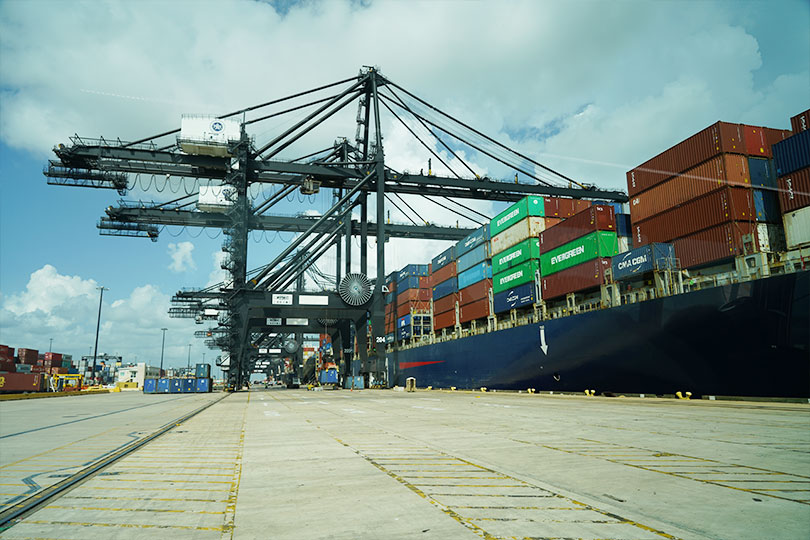By Jennifer Whitlock
Field Editor
As bottlenecks at some of the busiest U.S. ports drastically delay agricultural commodity exports, support for the Ocean Shipping Reform Act of 2021 is simultaneously ramping up.
First introduced by Reps. John Garamendi and Dusty Johnson in August, the legislation would stop foreign ocean carriers from “unreasonably” declining to ship U.S. agricultural commodities from U.S. ports.
Since the onset of the COVID-19 pandemic, Garamendi’s office said U.S. agricultural exporters have contacted the California legislator reporting ocean carriers have refused to accept bookings for their exports, instead choosing to send empty containers back to the Asia-Pacific as quickly as possible to be refilled with foreign exports.
Over the summer, the Agriculture Transportation Coalition noted 22% of U.S. agricultural exports could not be completed due to high ocean carrier rates, declining to carry export cargo, unreasonable demurrage and detention charges and other practices.
“Foreign businesses’ access to the American market and its consumers is a privilege, not a right. California’s agricultural exporters and other businesses are willing to pay to ensure that American-made products reach key markets in the Asia-Pacific. In turn, companies looking to offload foreign-made products at West Coast ports must provide opportunities for American exports. Even during a global pandemic, trade must be mutually beneficial, and that is exactly what our bipartisan bill ensures,” Garamendi said in a statement announcing the bill.
In March, more than 100 members of the House urged Chair of the Federal Maritime Commission Michael Khouri to investigate vessel-operating common carriers over the issue.
This legislation would be the first major update of federal regulations to the global shipping industry since 1998, according to Johnson, the bill’s cosponsor.
A coalition of 96 agriculture and forestry product industry groups, including the American Farm Bureau Federation, endorsed the bill shortly after it was released.
“The transportation crisis for U.S. agriculture and forest products is becoming increasingly dire each month. There is nothing we produce in agriculture and forest products in this country that cannot be sourced in some other country,” the groups wrote in a letter to Garamendi and Johnson. “If we cannot deliver affordably and dependably, our foreign customers will find alternatives to our exports.”
Despite a lukewarm initial reception in Congress, Johnson now believes there is a good chance the House will approve the legislation before the end of 2021.
“Two hundred and twenty national organizations have endorsed our bill, and I think we’ve got better than a coin-flip chance of getting it done yet this year,” he said during the Midwest Agricultural Export Summit in Sioux Falls, South Dakota.
U.S. pork, poultry, rice, almonds, walnuts and wine are being highly affected by the availability of empty shipping containers, according to Johnson. And many other sectors are also facing export delays because of the issue.
In comments made to Agri-Pulse, Sen. John Thune (R-South Dakota) indicated he would consider writing a companion bill to the House version.
“The supply chain issue is very real and not easily solved,” he said.
Thune and Sen. Amy Kobluchar (D-Minnesota) are working on a separate bipartisan bill to deal with increasing demurrage charges for U.S. exporters facing unanticipated shipping delays due to cargo container bottlenecks and port congestion.

